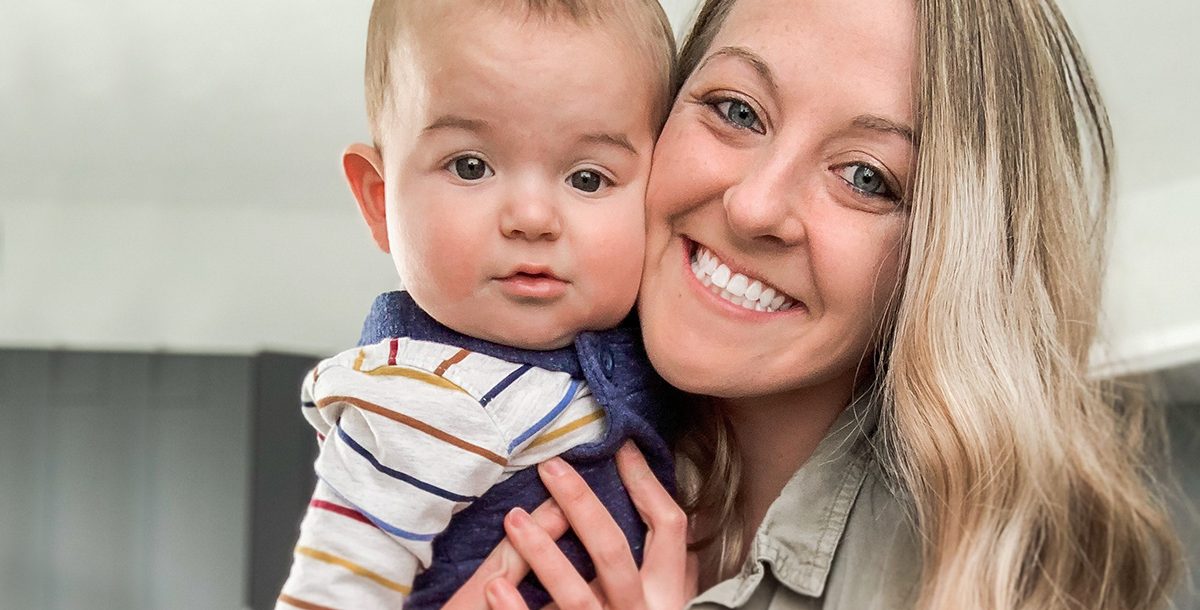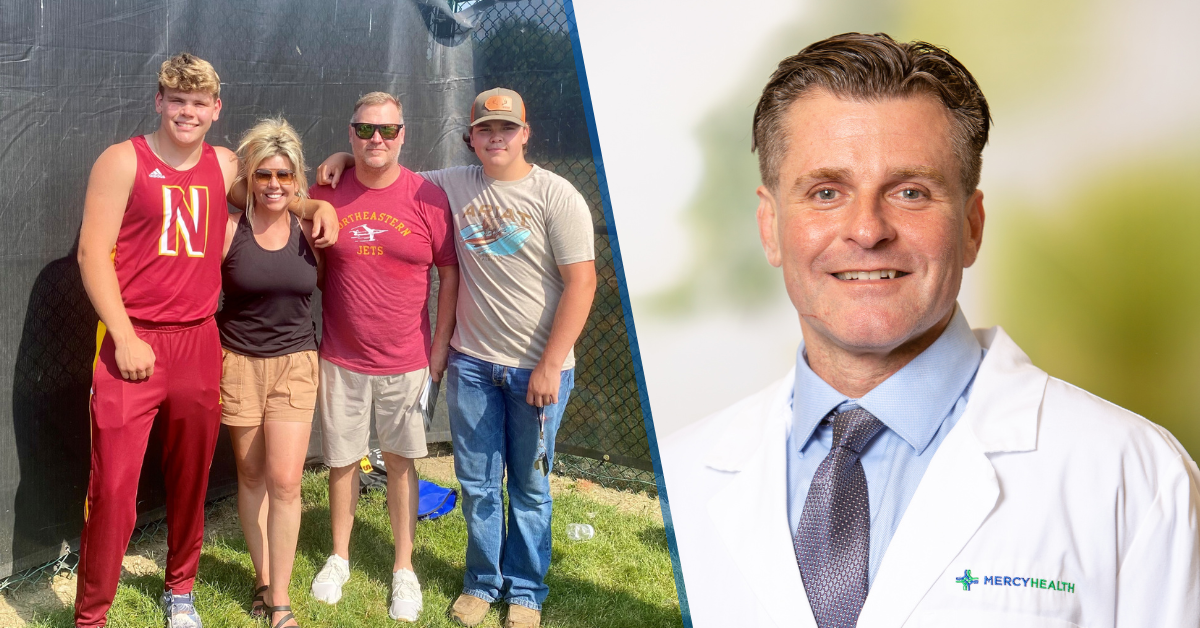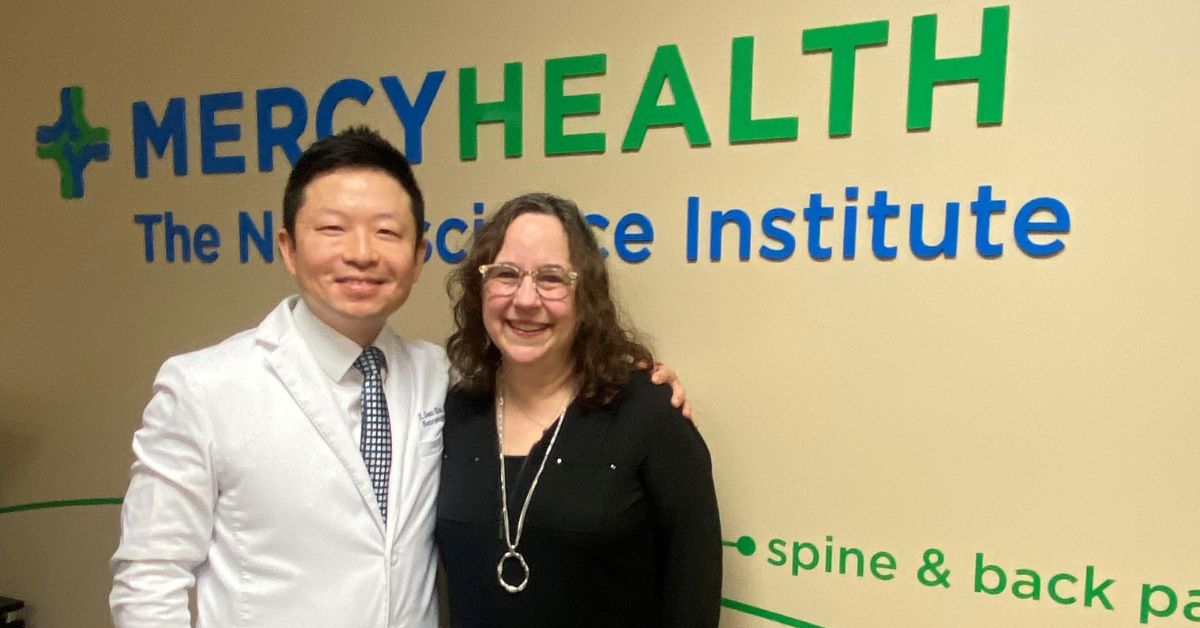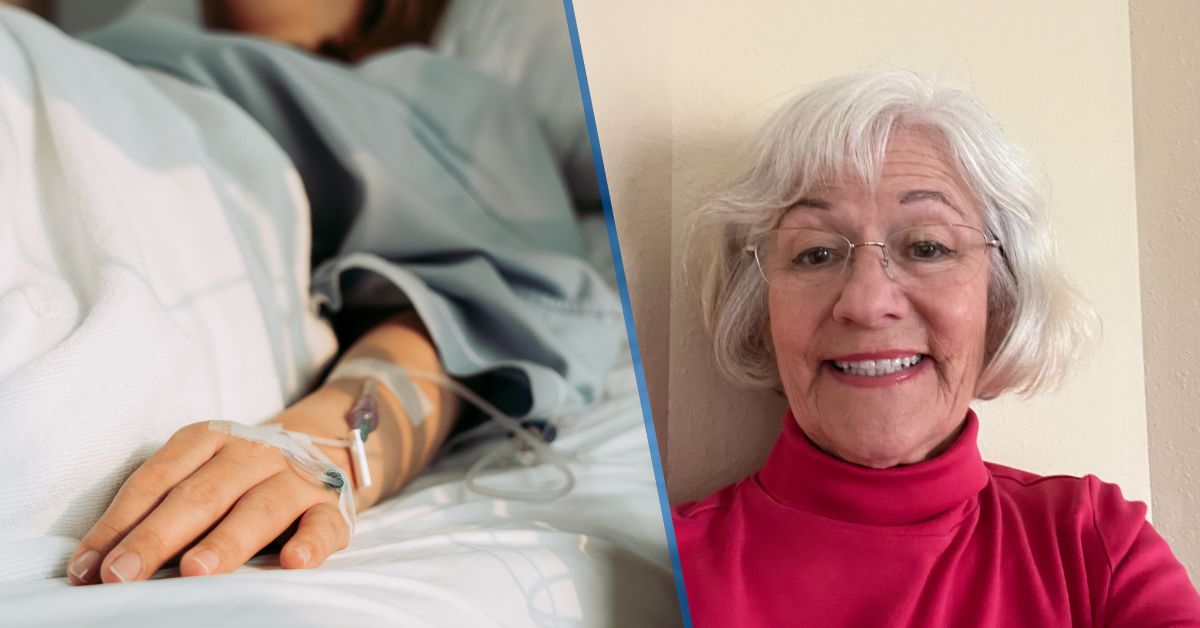Taylor Fitzpatrick’s birth story was unfortunately not a typical one.
After 30 minutes of pushing, her son’s heart rate was rapidly increasing. When his head popped through, the doctor realized that the umbilical cord was wrapped around his neck. Luckily, the baby was delivered quickly and did very well after delivery.
Fast forward six weeks, Taylor noticed she was leaking gas and stool from her vagina. She went in for another follow up appointment and was referred to Steven Kleeman, MD, a urogynecologist at Mercy Health – Urogynecology and Female Pelvic Medicine in Cincinnati, OH.
“After meeting with Dr. Kleeman, he informed me that I had developed a rectovaginal fistula,” Taylor shares. “This then led to me undergoing surgery which included having my rectovaginal fistula repaired, as well as repairing the external anal sphincter muscle and perineum.”
A rectovaginal fistula is essentially an abnormal connection between the vagina and rectum. It allows gas or stool to escape or pass into the vagina. The perineum, or area between the vagina and rectum, contains important specialized muscles, including the external anal sphincter and others. They help facilitate the control of bowel contents.
For Taylor these muscles were injured and needed repair. After the procedure, the first month recovering while taking care of a newborn was a difficult one.
“I was afraid to do anything because I did not want to tear it again. I wanted to move on and feel normal. I was very fortunate to have the best support at home and had 24-hour care the first three to four weeks,” says Taylor.
At her final post-op appointment with Dr. Kleeman, she was referred for pelvic floor physical therapy to help her to strengthen the muscles that were repaired.
“Strengthening and rehabbing the pelvic floor muscles with pelvic floor physical therapy can be a very important step in returning to normal function,” Dr. Kleeman says.
When initially hearing her diagnosis, Taylor was understandably shocked and nervous.
“… I thought I was never going to be able to have kids again. I thought how could this happen to me? I’m young, a first-time mom and am healthy.”
Luckily, Taylor had a friend who went through this same diagnosis a month before she did. Taylor was able to ask her lots of questions about her experiences. If it wasn’t for her friend and seeing her overcome it, Taylor doesn’t know how she would’ve felt.
“Probably lonely and depressed,” she says.
Dr. Kleeman echoes Taylors feelings saying, “many of our patients feel embarrassed, scared, depressed and alone. It is extremely difficult to speak openly about urinary and fecal incontinence. Unfortunately, these are very common conditions and sadly, many patients suffer silently for years before finding help. We strive to provide a comfortable, open environment where patients can express what they are experiencing. Once we understand the symptoms in their entirety, we can develop a plan to help patients get their life back.”
Our care providers also exceeded Taylor’s expectations.
“The people who stood out to me the most were Dr. Kleeman, my nurse Tricia and Jackie. They all made me feel comfortable and were there for me with anything I needed,” Taylor shares. “I would recommend them to anyone who would experience my situation. Making the hour and half one-way drive was worth it!”
The message that Taylor said she would like to share is that just because your postpartum is different from someone else, it doesn’t make you any less of a mom.
“Don’t be afraid to share your personal story, whether it’s different or not. I was hesitant at first, but I thought maybe down the road it would help someone else out knowing they aren’t the only one going through my same experiences.”
Learn about the OB/GYN and Women’s Health Specialties we offer at Mercy Health.






